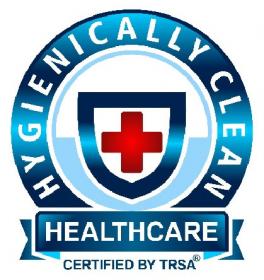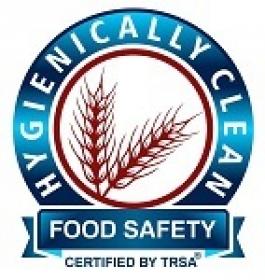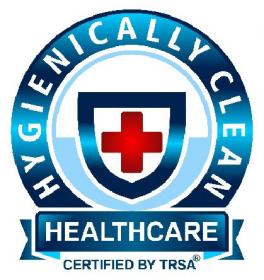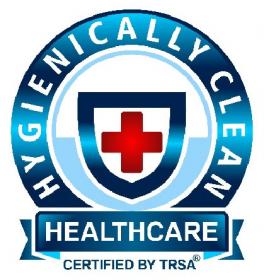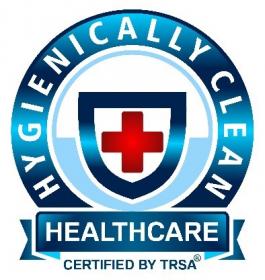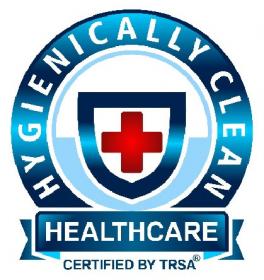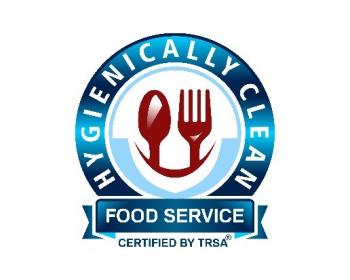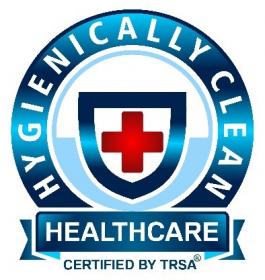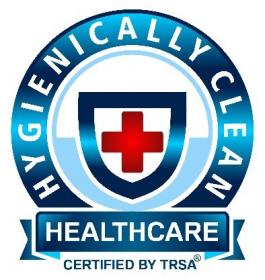All Twenty-three Angela Laundries Now Certified Hygienically Clean for Healthcare
Emphasis on Process, Third-party Validation and Outcome-based Testing
Angelica, one of the nation’s largest healthcare linen providers, now has 23 laundries that have earned the Hygienically Clean Healthcare certification. This is reflective of their commitment to Best Management Practices (BMPs) in laundering as verified by on-site inspection and their capability to produce hygienically clean textiles as quantified by ongoing microbial testing. Angelica’s locations are throughout the United States, and the laundries now carrying the certification are located in Phoenix, AZ; Colton, Fresno, Los Angeles, Orange, Pittsburg, Pomona, and Sacramento, CA; Holly Hill and Safety Harbor, FL; Rockmart, GA; Chicago, IL; Somerville and Worcester, MA; Durham, NC; Henderson, NV; Batavia, NY; Lorain, OH; Pawtucket, RI; Columbia, SC; Ooltewah, TN; and Dallas and Houston, TX.
The Hygienically Clean Healthcare certification confirms the organization’s continuing dedication to infection prevention, compliance with recognized industry standards and processing healthcare textiles using BMPs as described in its quality assurance documentation, a focal point for Hygienically Clean inspectors’ evaluation. The independent, third-party inspection must also confirm essential evidence that
- Employees are properly trained and protected
- Managers understand regulatory requirements
- OSHA-compliant
- Physical plant operates effectively
To achieve certification initially, laundries pass three rounds of outcome-based microbial testing, indicating that their processes are producing Hygienically Clean Healthcare textiles and diminished presence of yeast, mold and harmful bacteria. They also must pass a facility inspection. To maintain their certification, they must pass quarterly testing to ensure that as laundry conditions change, such as water quality, textile fabric composition and wash chemistry, laundered product quality is consistently maintained. Re-inspection occurs every two to three years.
This process eliminates subjectivity by focusing on outcomes and results that verify textiles cleaned in these facilities meet appropriate hygienically clean standards and BMPs for hospitals, surgery centers, medical offices, nursing homes and other medical facilities.
Hygienically Clean Healthcare certification acknowledges laundries’ effectiveness in protecting healthcare operations by verifying quality control procedures in linen, uniform and facility services operations related to the handling of textiles containing blood and other potentially infectious materials.
Certified laundries use processes, chemicals and BMPs acknowledged by the federal Centers for Disease Control and Prevention (CDC), Centers for Medicare and Medicaid Services, Association for the Advancement of Medical Instrumentation, American National Standards Institute and others. Introduced in 2012, Hygienically Clean Healthcare brought to North America the international cleanliness standards for healthcare linens and garments used worldwide by the Certification Association for Professional Textile Services and the European Committee for Standardization.
Objective experts in epidemiology, infection control, nursing and other healthcare professions work with Hygienically Clean launderers to ensure the certification continues to enforce the highest standards for producing clean healthcare textiles.
“Congratulations to Angelica on their certifications,” said Joseph Ricci, TRSA president and CEO. “This achievement proves their commitment to infection prevention and that their laundries take every step possible to prevent human illness.”
TRSA


